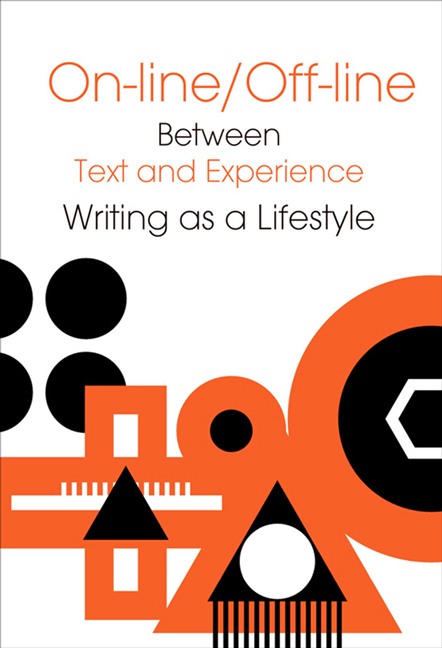Book contents
- Frontmatter
- Contents
- Editors’ Introduction
- ON-LINE/ OFF-LINE
- LITERATURE AND CONVERGENCE
- Poetics in the Age of Convergence
- Convergence and Communication: Genre Analysis of the websites of Polish Writers
- Towards a Generic Analysis of the Microblog (Based on a Study of Twitter)
- How Does the Hybrid Work of Art Exist?
- Liberature in Relation to the Reconfiguration of Aisthesis
- Literature in/of the City – Introductory Comments
- Literary Studies, History and Popular Culture – the Spaces of Convergence
- Afterpop: the Almost Perfect Convergence
- Transcultural Convergence? Polish Poets and Artists and the Oriental Verbo-visuality
- From an E-narrative Poem towards an Interactive Work of Art. Media Convergence Illustrated with DOWN by Zenon Fajfer and The Surprising Spiral by Ken Feingold
Poetics in the Age of Convergence
from LITERATURE AND CONVERGENCE
Published online by Cambridge University Press: 12 January 2018
- Frontmatter
- Contents
- Editors’ Introduction
- ON-LINE/ OFF-LINE
- LITERATURE AND CONVERGENCE
- Poetics in the Age of Convergence
- Convergence and Communication: Genre Analysis of the websites of Polish Writers
- Towards a Generic Analysis of the Microblog (Based on a Study of Twitter)
- How Does the Hybrid Work of Art Exist?
- Liberature in Relation to the Reconfiguration of Aisthesis
- Literature in/of the City – Introductory Comments
- Literary Studies, History and Popular Culture – the Spaces of Convergence
- Afterpop: the Almost Perfect Convergence
- Transcultural Convergence? Polish Poets and Artists and the Oriental Verbo-visuality
- From an E-narrative Poem towards an Interactive Work of Art. Media Convergence Illustrated with DOWN by Zenon Fajfer and The Surprising Spiral by Ken Feingold
Summary
Abstract
The aim of the study is to present changes in the structure of text (its structure and ways of creation, figures in particular) in digital discourse. The identity of digital communication is supported by existing signs, texts, and discourses; and how it develops in the process of their adaptation and reinterpretation. The Internet seems to be a really good space in which different discourses become alike. This process results in the creation of new poetics of text and discourse. Digital media modifies rhetorical figures (especially the ontology and functions of those figures), it cancel figures existing in traditional texts (for example, inversion is invalidated because no determined way of reading the text exists), and it cre-ates new ones.
In digital discourse words and icons have a multifunctional nature (meaning-making, linking, acting, marking, and signalling the sender's emotions).Traditional textual forms, which differ semiotically and medially, are combined and transformed, so that the bound-aries between forms of expression are blurred.
Key words: digital poetics, convergence, interactive figures, hypertext, link
New, yet old, or the term in the context of modernity
The term convergence in the field of literary studies is applied to phenome-na which have long been discussed within other categories in the human-ities, such as hybridisation or homogenisation, especially in reference to the mass media (Horkheimer, Adorno 1969; Macdonald 1959; Eco 1968; Kłoskowska 1983). The very term is not new, either, as convergence has been well established in the realm of biology, medicine, linguistics, histo-riography, anthropology, political science, and media studies.
As a matter of fact, the emergence of convergence within humanistic discourse and, more specifically, in literary studies, defines and actualises the phenomenon covered by the term: assimilation, or the occurrence of analogous processes in diverse fields and at times distant domains. The assimilation of texts, their structures, and genres, results in the similarity of terminology.
The wandering of categories and the application of terms from cer-tain disciplines to others are phenomena discussed by theoreticians com-ing from diverse schools and fields of cultural studies, such as Roman Jakobson (Jakobson 1971; 1989), Mieke Bal (Bal 2002), or Clifford Geertz (Geertz 1983). These phenomena reflect what is happening in textuality it-self and in the space of cultural discourses, which organise social life and – as Michel Foucault would have said – exercise power over it (Foucault 2002). After Geertzian blurred genres and mixed ways of speaking, come blurred discourses.
- Type
- Chapter
- Information
- On-line/Off-lineBetween Text and Experience: Writing as a Lifestyle, pp. 169 - 188Publisher: Jagiellonian University PressPrint publication year: 2016



